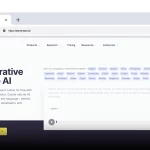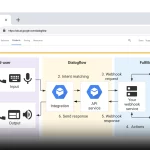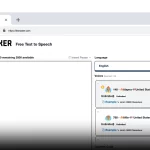Top 21 Conversational AI Examples Powering Better User Experiences

Generate AI Voices, Indistinguishable from Humans
Get started for freeTable of Contents
Customer expectations have changed. As consumers demand faster, more efficient service, businesses are turning to AI voice agents to help lighten the load and improve customer experience. Text- or voice-based, these digital assistants can carry out conversations with customers to provide support, answer questions, and help with transactions. The best AI voice agents can make these conversations sound human-like, creating seamless and engaging interactions that enhance customer satisfaction. If you’re wondering how to create an AI agent, understanding the key technologies behind conversational AI is essential. In this blog, we’ll explore conversational AI examples to show how this technology works, how it can benefit your business, and how to get started.
Play AI’s AI voice agent can help your business leverage AI-driven conversations to create seamless, engaging, and efficient interactions that enhance customer satisfaction and drive business success.
What Makes a Good Conversational AI Agent?

According to Allied Market Research, the conversational AI market is projected to reach USD 32.6 billion by 2030. This growth trend reflects mounting excitement around conversational AI technology, especially in today’s business environment, where customer service is more critical than ever.
After all, conversational AI provides an always-on portal for engagement across various domains and channels in a global 24-hour business world.
Key Attributes Defining High-Quality Conversational AI
Conversational AI, often called chatbots, simulate human conversation using voice or text. They can handle open-ended queries and deliver relevant, accurate, timely responses. The technology combines machine learning and natural language processing to improve the customer experience and drive better business outcomes.
As a result, they can help companies achieve their goals faster and more efficiently than traditional methods.
Machine Learning: The Brain Behind Conversational AI
Sophisticated machine learning algorithms drive the intelligence behind conversational AI, enabling it to learn and enhance its capabilities through experience. These algorithms analyze patterns in data, adapt to new inputs, and refine their responses over time, making interactions with users more fluid and natural.
Natural Language Processing & Deep Learning: The Secret Sauce of Conversational AI
Natural language processing and deep learning are integral components of conversational AI products, each playing a unique role in processing and understanding human language. NLP focuses on interpreting the intricacies of language, such as syntax and semantics, and the subtleties of human dialogue.
Deep Learning for Nuanced Conversational Understanding
It equips conversational AI with the capability to grasp the intent behind user inputs and detect nuances in tone, enabling contextually relevant and appropriately phrased responses. Deep learning enhances this process by allowing the models to learn from vast amounts of data, mimicking how humans understand and generate language.
This synergy between NLP and deep learning allows conversational AI to generate remarkably human-like conversations by accurately replicating the complexity and variability of human language.
Predictive Abilities of Conversational AI
The integration of these technologies extends beyond reactive communication. Conversational AI uses insights from past interactions to predict user needs and preferences. This predictive capability enables the system to directly respond to inquiries and proactively initiate conversations, suggest relevant information, or offer advice before the user explicitly asks.
Intelligent Chatbots Anticipating User Needs
For example, a chat bubble might inquire if a user needs assistance while browsing a brand’s website’s frequently asked questions (FAQs) section. These proactive interactions represent a shift from merely reactive systems to intelligent assistants anticipating and addressing user needs.
Popular Real-World Industry Uses of Conversational AI
There is no shortage of examples of conversational AI. Its ubiquity is a testament to its effectiveness, and the versatility of its application has forever altered how the following domains operate daily:
Customer Service
Conversational AI enhances customer service chatbots on the front line of customer interactions, achieving substantial cost savings and enhancing customer engagement. Businesses integrate conversational AI solutions into their contact centers and customer support portals.
Conversational AI directly enhances customer self-service options, leading to a more personalized and efficient support experience. Instant responses significantly reduce wait times typically associated with traditional call centers.
AI’s Impact on Response Time, Accuracy, and Satisfaction
The technology’s ability to adapt and learn from interactions further refines customer support metrics, including:
- Response time
- Accuracy of information provided
- Customer satisfaction
- Problem-resolution efficiency
These AI-driven systems can manage a customer journey from routine inquiries to addressing more complex and data-sensitive tasks.
AI-Powered Query Resolution
By rapidly analyzing customer queries, AI can answer questions and deliver accurate and appropriate responses, helping to ensure that customers receive relevant information and agents don’t have to spend time on routine tasks.
If a query surpasses the bot’s capabilities, these AI systems can route the issue to live agents better equipped to handle intricate, nuanced customer interactions.
Personalized, 24/7 AI Support
Integrating conversational AI tools into customer relationship management systems allows AI to draw from customer history and provide tailored advice and solutions unique to each customer. AI bots offer round-the-clock service, helping to ensure that customer queries receive attention at any time, regardless of high volume or peak call times; customer service does not suffer.
Marketing and Sales
Conversational AI has become an invaluable tool for data collection. It assists customers and gathers crucial customer data during interactions to convert potential customers into active ones. This data can be used to understand customer preferences better and tailor marketing strategies accordingly. It aids businesses in gathering and analyzing data to inform strategic decisions.
Evaluating customer sentiments, identifying common user requests, and collating customer feedback provide valuable insights that support data-driven decision-making.
HR and Internal Processes
Conversational AI applications streamline HR operations by addressing FAQs quickly, facilitating smooth and personalized employee onboarding, and enhancing employee training programs. Also, conversational AI systems can manage and categorize support tickets, prioritizing them based on urgency and relevance.
Retail
Customers can manage their entire shopping experience online—from placing orders to handling shipping, changes, cancellations, returns, and even accessing customer support—all without human interaction. In the back end, these platforms enhance inventory management and track stock to help retailers maintain an optimal inventory balance.
Data-Driven Commerce
When conversational AI applications interact with customers, they also gather data that provides valuable insights about those customers. The AI can assist customers in finding and purchasing items swiftly, often with suggestions tailored to their preferences and past behavior. This improves the shopping experience and positively influences customers:
- Engagement
- Retention
- Conversion rates
In e-commerce, this capability can significantly reduce cart abandonment by helping customers make informed decisions quickly.
Banking and Financial Services
AI-driven solutions are making banking more accessible and secure, from assisting customers with routine transactions to providing financial advice and immediate fraud detection.
Social Media
Conversational AI can engage users on social media in real time through AI assistants, respond to comments, or interact in direct messages. AI products can analyze user data and interactions to offer tailored product recommendations, content, or responses that align with the user’s preferences and past behavior.
AI tools gather data from social media campaigns, analyze their performance, and glean insights to help brands understand the effectiveness of their campaigns, audience engagement levels, and how they can improve future strategies.
Multipurpose
Generative AI applications like ChatGPT and Gemini (previously Bard) showcase the versatility of conversational AI. In these systems, conversational AI trains on massive data sets known as large language models, allowing them to create content, retrieve specific information, translate languages, and offer problem-solving insights for complex issues.
Conversational AI is also making significant strides in other industries such as education, insurance, and travel. The technology enhances user engagement, streamlines service delivery, and optimizes operational efficiency in these sectors.
Conversational AI for Intelligent, Interactive Environments
Integrating conversational AI into the Internet of Things (IoT) also offers vast possibilities, enabling more intelligent and interactive environments through seamless communication between connected devices.
Related Reading
- AI for Customer Service
- Conversational AI for Customer Service
- Conversational AI in Healthcare
- AI in Hospitality Industry
- How to Use AI in Sales
- AI for Real Estate Agents
- Conversational AI for Sales
- AI for Insurance Agents
- AI Sales Agents
21 Best Conversational AI Examples
1. Play AI – The Future of Customer Interaction

Play AI lets you create intelligent AI assistants in minutes. These voice and chatbots handle customer support, sales, and scheduling with human-like precision across 30 languages. Their enterprise-grade solution seamlessly integrates with your systems, operates 24/7, and adapts to your unique industry needs.
With low-latency conversations and SOC 2 compliance, you’re not just implementing a tool but transforming customer interaction. Build your first AI voice agent in 20 minutes and step into the future of intelligent communication.
2. IBM Watsonx Assistant – The Enterprise-Class Chatbot Builder

The enterprise conversational AI platform IBM Watsonx Assistant enables users to create intelligent virtual and voice assistants that can respond to users’ queries quickly, reliably, and accurately on any messaging platform, application, device, or channel. It is an effective option for sophisticated chatbots requiring high-end NLP skills.
It can perform jobs like sentiment analysis, handling big datasets, and identifying items in talks. IBM’s virtual assistants are perfect for enterprise applications, sophisticated customer service contacts, and managing subtle conversations.
3. SAP Conversational AI – The SAP-Connected Chatbot

With SAP Conversational AI, you can create end-to-end chatbots and customize your digital assistant with a robust building platform. The platform lets users generate chatbots with complete SAP connectivity quickly and easily in a few days.
Users can also utilize the platform to build AI chatbots from scratch to automate their:
- IT services
- Customer support
- Purchasing process
4. Drift – The B2B Conversational Marketing Solution

Drift allows businesses to interact with customers in a tailored manner at every point in their journey with Drift’s Conversation Cloud, from end-to-end customer journey. It comprises three main products driven by underlying Conversational AI:
- Conversational Marketing
- Conversational Sales
- Conversational Service
Drift focuses on improving the B2B buying experience with its modernized AI-powered buyer engagement platform.
5. Qualified – The AI Chatbot for Sales

Qualified is the PipelineAI platform for global B2B businesses, built to optimize incoming pipelines through automation and artificial intelligence. Built on the Salesforce Platform, Qualified is the top pipeline generation platform available on the Salesforce AppExchange.
Its highlights include Qualified guarantees of customer success and human-centered selling that personalizes business conversations.
6. Kenyt.ai – The Lead Generation Chatbot

Kenyt.AI has developed dependable conversational flows that can capture up to 3X more leads from current marketing activity and increase sales conversions by up to 50%. Its chatbots exchange over a million messages.
7. Tars – The No-Code Chatbot Builder

Tars allows users to create their chatbot with no prior programming knowledge. With chatbots, Tars assists marketing and customer service teams in redefining the customer experience, automate customer support interactions, and optimizing conversion funnels.
8. Verloop.io – The Live Chat Automation Tool

Verloop.io is a live chat platform that offers a range of automated features to streamline customer assistance and interaction, including lead generation, demo booking, and e-commerce. It allows AI support through chat and voice across multiple channels, like websites and WhatsApp, as well as in-app and voice interactions.
9. Botpress – The Open-Source Chatbot Platform

Botpress is an easy-to-use conversational AI platform that enables individuals and groups of all sizes to create, construct, and implement AI-driven chatbots for multiple uses. Using large language models (LLM) and generative AI, Botpress creates engaging, tailored chatbot experiences for any need.
10. Yellow.ai – The Customer Service Automation Platform

With the help of our generative AI-powered customer service automation platform, Yellow.ai enables businesses to have unforgettable client conversations. Its user-friendly interface makes it easy for users to create and apply dynamic solutions.
11. Jetlink Conversational AI Platform – The Voice and Digital Assistant

Jetlink virtual assistants automate and streamline the customer journey across voice- and digital-based channels. They respond to frequently requested queries or requests and can smoothly transition to live operators, which increases customer satisfaction.
Jetlink boosts that its assistants can create deep, multi-step discussions with users that incorporate business logic and save context.
12. Botsonic – The Chatbot for Website Conversion

Writesonic’s Botsonic is a unique AI chatbot builder that doesn’t require programming. It allows businesses to engage in natural language discussions with website visitors, and brands can quickly and easily create conversational AI experiences for their visitors with Botsonic.
13. Conversica – The AI Assistant for Sales

The Conversica conversational AI platform facilitates authentic, two-way dialogues that precisely engage every stage, boosting lead conversions and revenue development. Conversica virtual assistants can engage in meaningful conversations in real time throughout the entire customer lifecycle.
They are also intelligent enough to identify and close “conversation gaps” in the funnel by sending the appropriate message at the right moment, which expedites the conversion process for any indication of interest.
14. Herbie.ai Conversational AI Chatbot – The Multilingual AI Assistant
Herbie is a sophisticated and conversational AI chatbot. It is a two-way voice-activated AI assistant that interacts with consumers via text and voice. Herbie is available on over 13 social media sites and offers unified support and energetic assistance.
Herbie is a full-time, multilingual digital assistant who assists clients with their inquiries, purchases, and other needs. Herbie engages with clients in their language of choice, digitally revolutionizing a company.
15. Amio – An Easy-to-Use Conversational AI Platform

Amio is a conversational AI platform that is simple to use and allows developers to create dependable chatbots. The customer experience team gains from round-the-clock, real-time assistance via multiple channels. The marketing and sales team believes proactive outreach increases pre-sales involvement.
16. Meera – The AI Chatbot for Marketing

With human-like ease of text messaging, Meera’s artificial intelligence platform can automate 80% of your team’s laborious tasks. It instantly engages prospects and nurtures them until they are prepared to speak with sales and either set up a meeting or route a call to a team member.
17. Amazon Lex – The Budget-Friendly Option

A budget-friendly option from Amazon Web Services (AWS) that’s easy to set up and integrates well with other AWS services. It’s a good fit for simpler chatbots with well-defined conversation flows.
18. Google Dialogflow – The Google-Centric Chatbot

A user-friendly option with pre-built integrations for Google products like Assistant and Search. It’s a solid choice for those who want a quick and easy way to get started with chatbot development.
19. Kore.ai – The Enterprise-Grade Automation Platform

An enterprise-grade chatbot platform that excels in automation and streamlining business workflows. It can integrate with various enterprise systems and handle complex tasks.
20. LivePerson – The Omnichannel Customer Engagement Platform

A comprehensive customer engagement platform that combines chatbot functionalities with live chat features. It provides a holistic solution for managing customer interactions across various channels.
21. NVIDIA Riva – The Speech AI Platform

It is a good option for voice-based applications focused on real-time speech recognition and synthesis. It can be integrated with other chatbot development tools to create voice-enabled chatbots.
Related Reading
- Conversational AI IVR
- Conversational AI in Banking
- Conversational AI Hospitality
- Conversational AI Ecommerce
- Conversational AI for Finance
- Conversational AI Design
- Conversational AI in Retail
- Conversational AI for Banking
- Conversational AI in Insurance
- Voice Ordering for Restaurants
Build an AI Voice Agent within Less than 20 Minutes Today
Play AI builds voice AI assistants that help businesses improve customer communication. Our voice AI assistants work 24/7 to:
- Answer questions
- Solve problems
- Provide information to your customers
Customer Interactions and Operational Efficiency
Play AI voice assistants can manage conversations with human-like precision, so your customers won’t be able to tell they are talking to a machine. Not only that, but they also integrate with your existing systems to help streamline operations and create a more efficient workflow.
Boost efficiency with an AI voice agent that delivers human-like conversations and integrates with your systems. Elevate your customer experience today!
Related Reading
- Examples of Conversational AI
- Conversational Agents
- Conversational AI Companies
- Air AI Pricing
- Voice AI Companies
- Conversational AI Tools
- Conversational AI Analytics
- Conversational AI Cold Calling
Text To Speech Leaderboard
| Company Name | Votes | Win Percentage |
|---|---|---|
| PlayHT | 745 (950) | 78.42% |
| ElevenLabs | 117 (231) | 50.65% |
| TTSMaker | 75 (217) | 34.56% |
| Speechgen | 29 (217) | 13.36% |
| Uberduck | 107 (214) | 50.00% |
| Listnr AI | 70 (209) | 33.49% |
| Resemble AI | 101 (203) | 49.75% |
| Speechify | 80 (196) | 40.82% |
| Narakeet | 86 (195) | 44.10% |
| Typecast | 57 (189) | 30.16% |
| NaturalReader | 26 (86) | 30.23% |
| WellSaid Labs | 14 (60) | 23.33% |
| Murf AI | 16 (57) | 28.07% |
| Wavel AI | 14 (50) | 28.00% |
Similar articles

12 Ways Conversational AI for Customer Service Can Elevate Your Brand

8 Sample Use Cases of AI for Customer Service & How to Implement Them

How to Create an AI Agent for Scalable and Adaptive Solutions

DeepSeek VS ChatGPT

DeepSeek-V3: Getting Started
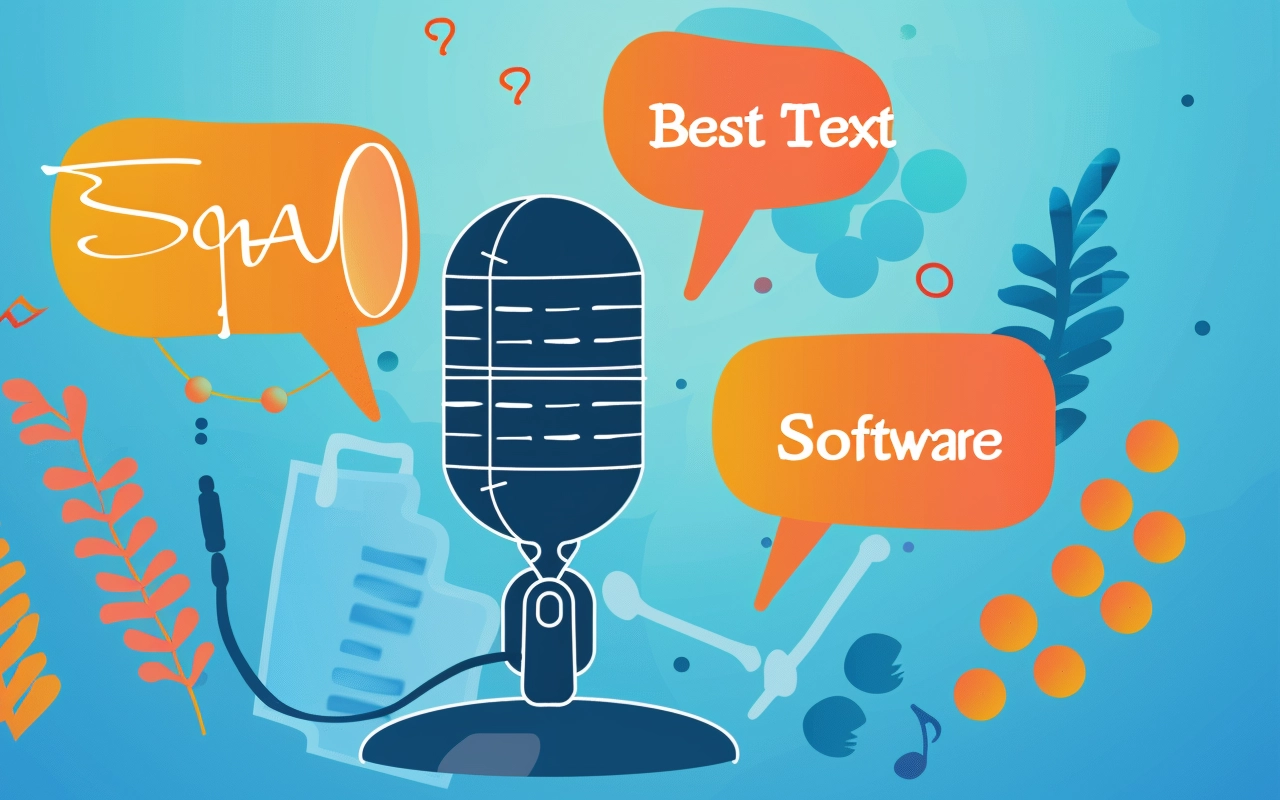
Best Text to Speech Software in 2025

Conversational AI for Customer Service
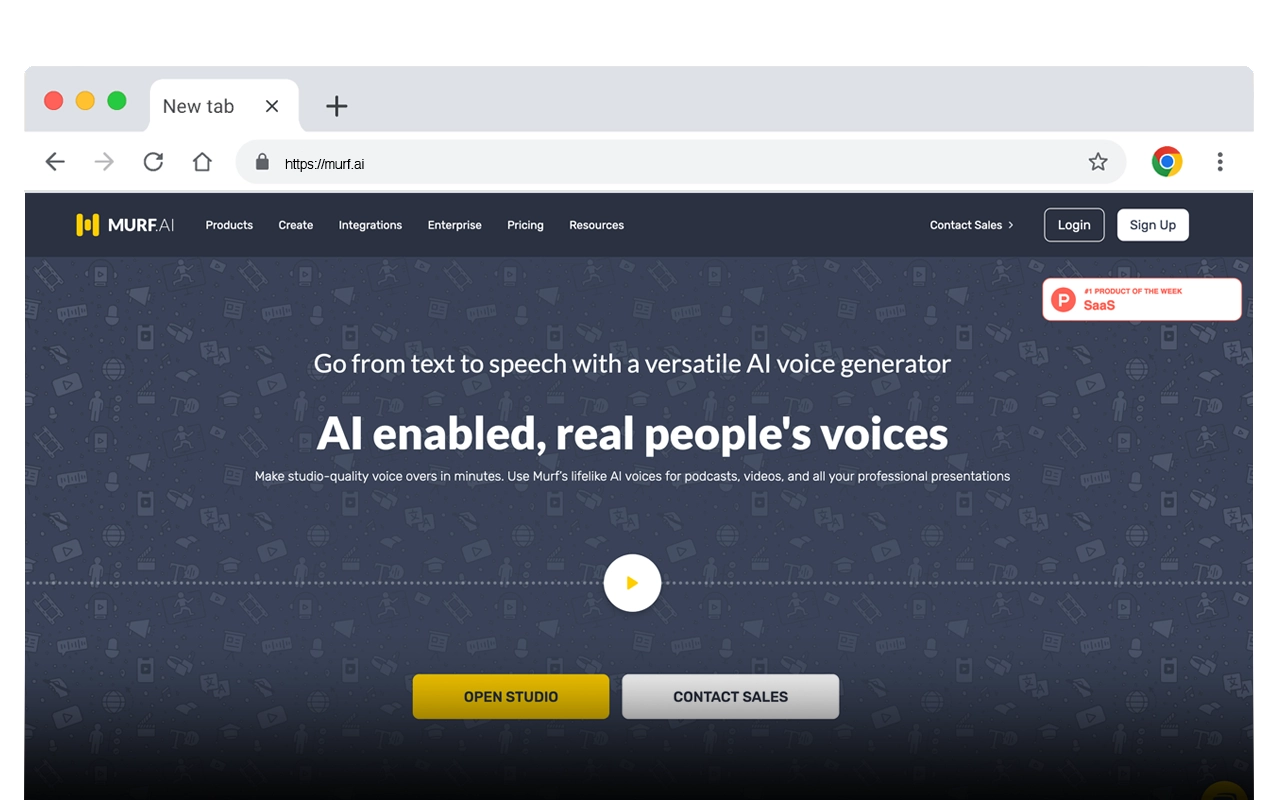
Murf AI Pricing: Comprehensive Analysis
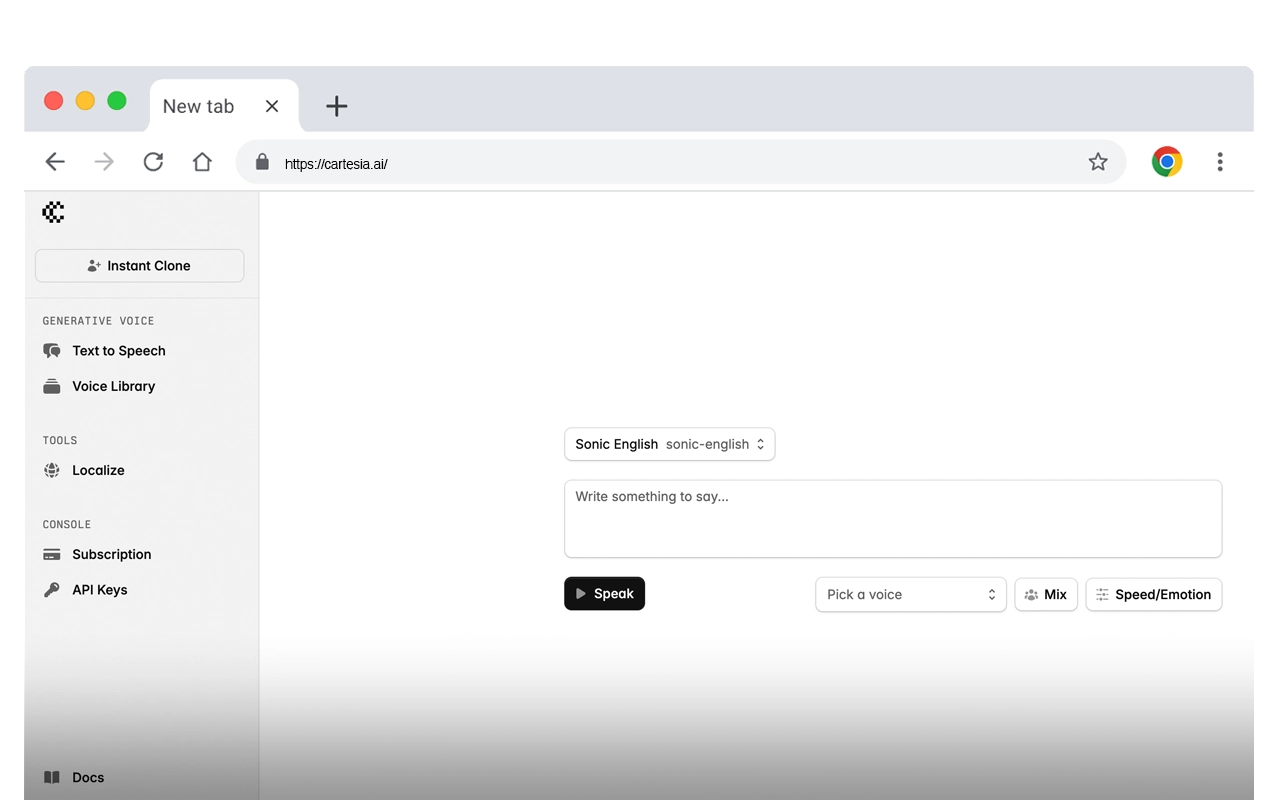
Cartesia AI Pricing: A Detailed Overview
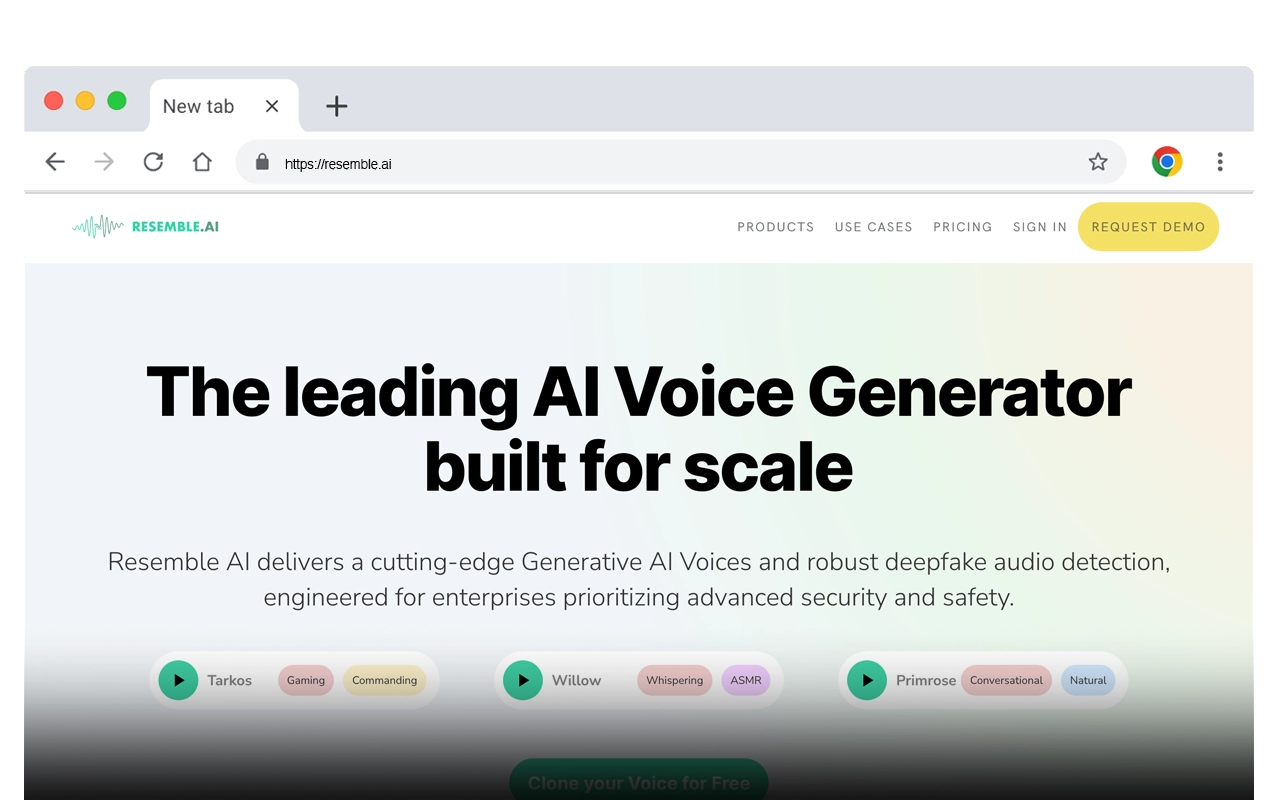
Resemble AI Pricing: A Detailed Look
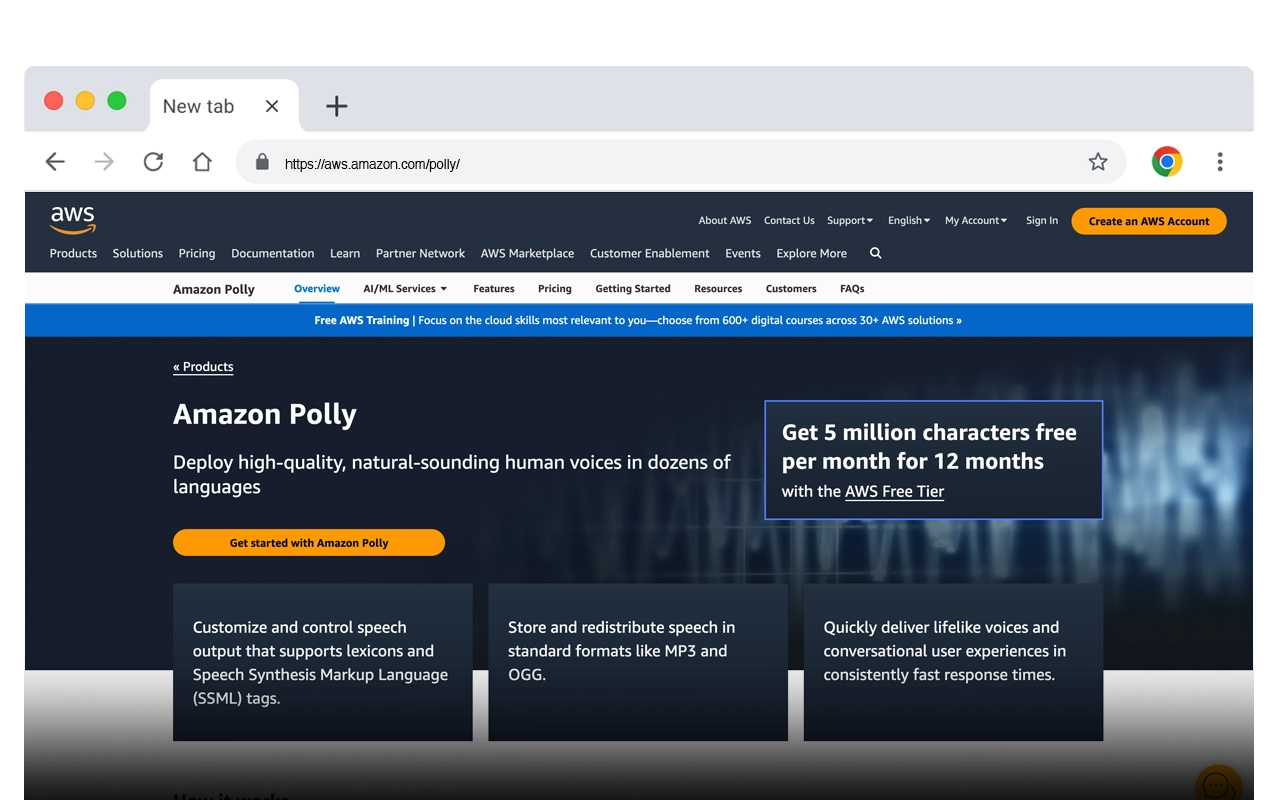
Amazon Polly Text to Speech Pricing: A Comprehensive Guide

Azure Text-to-Speech Pricing: A Detailed Overview
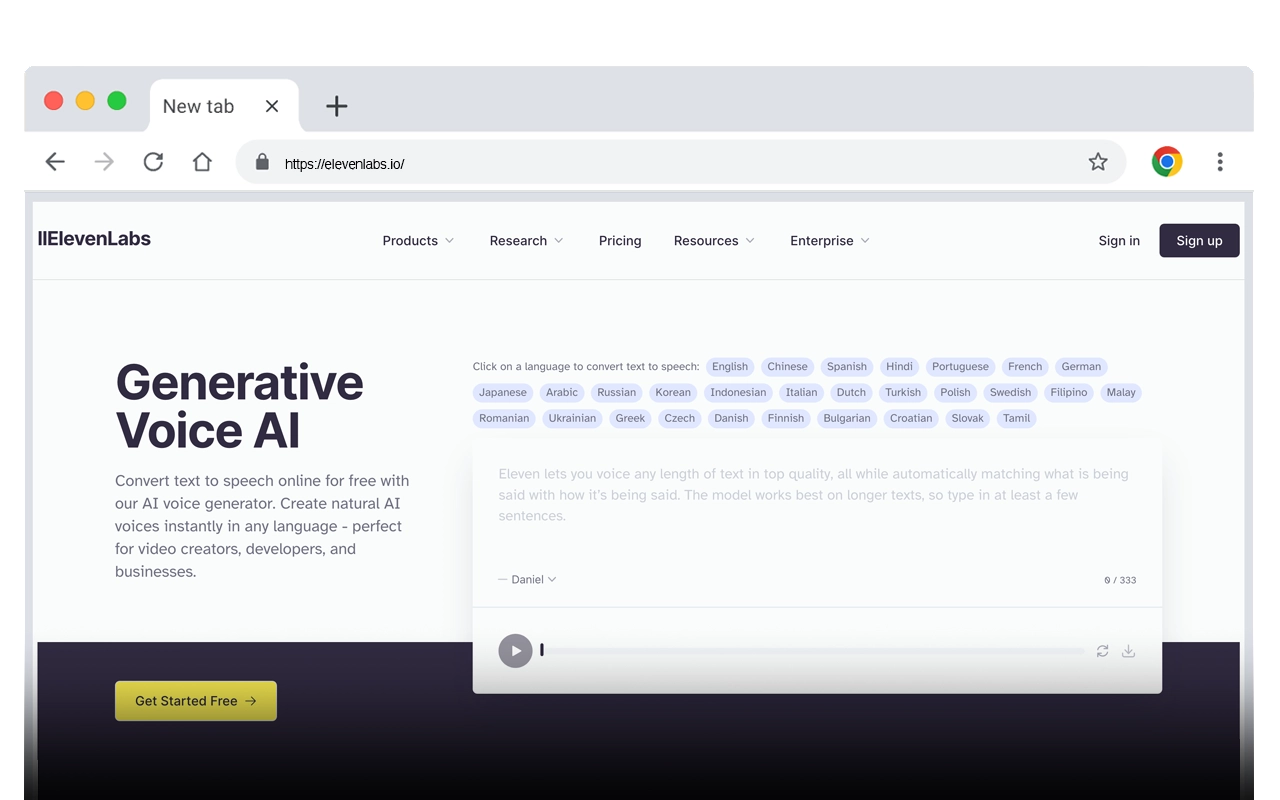
ElevenLabs Pricing: A Complete Guide
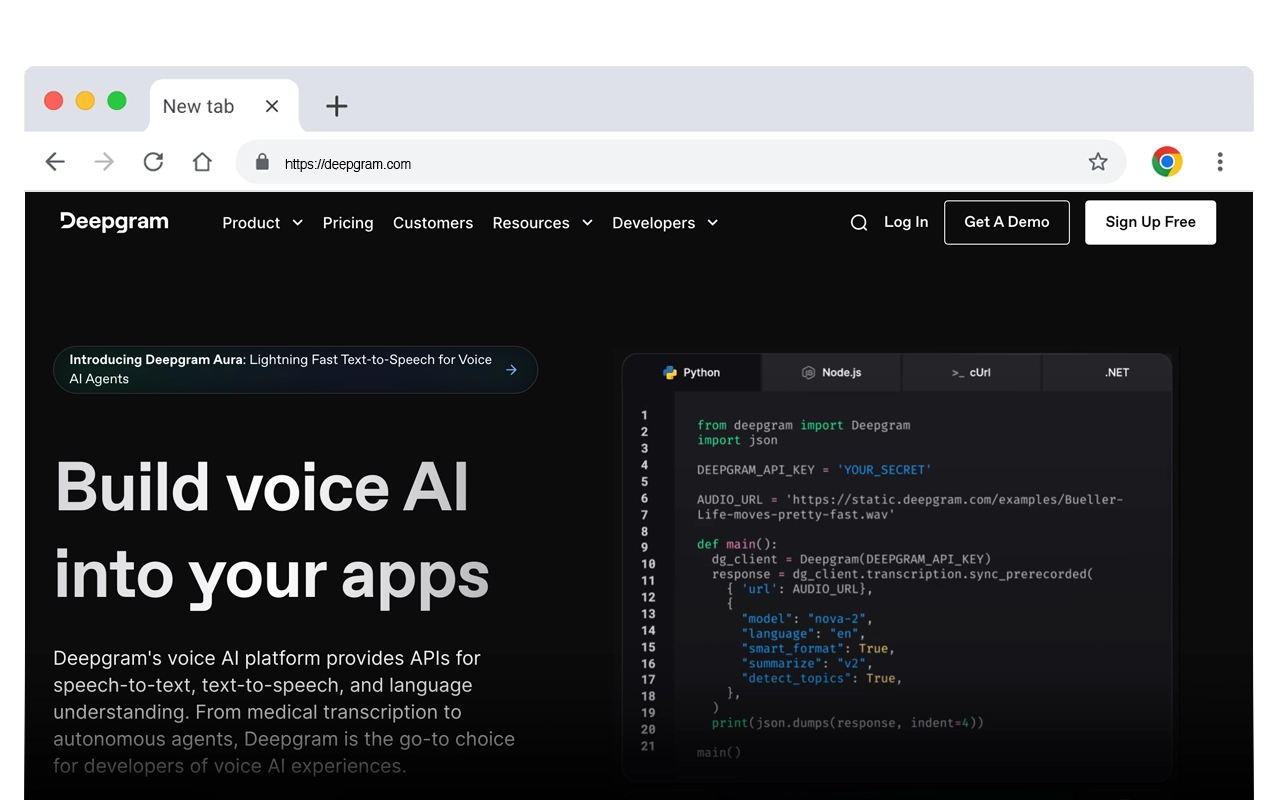
Deepgram TTS Pricing: A Comprehensive Guide

Speechify Pricing: Plans, Features, and Costs Explained



































































